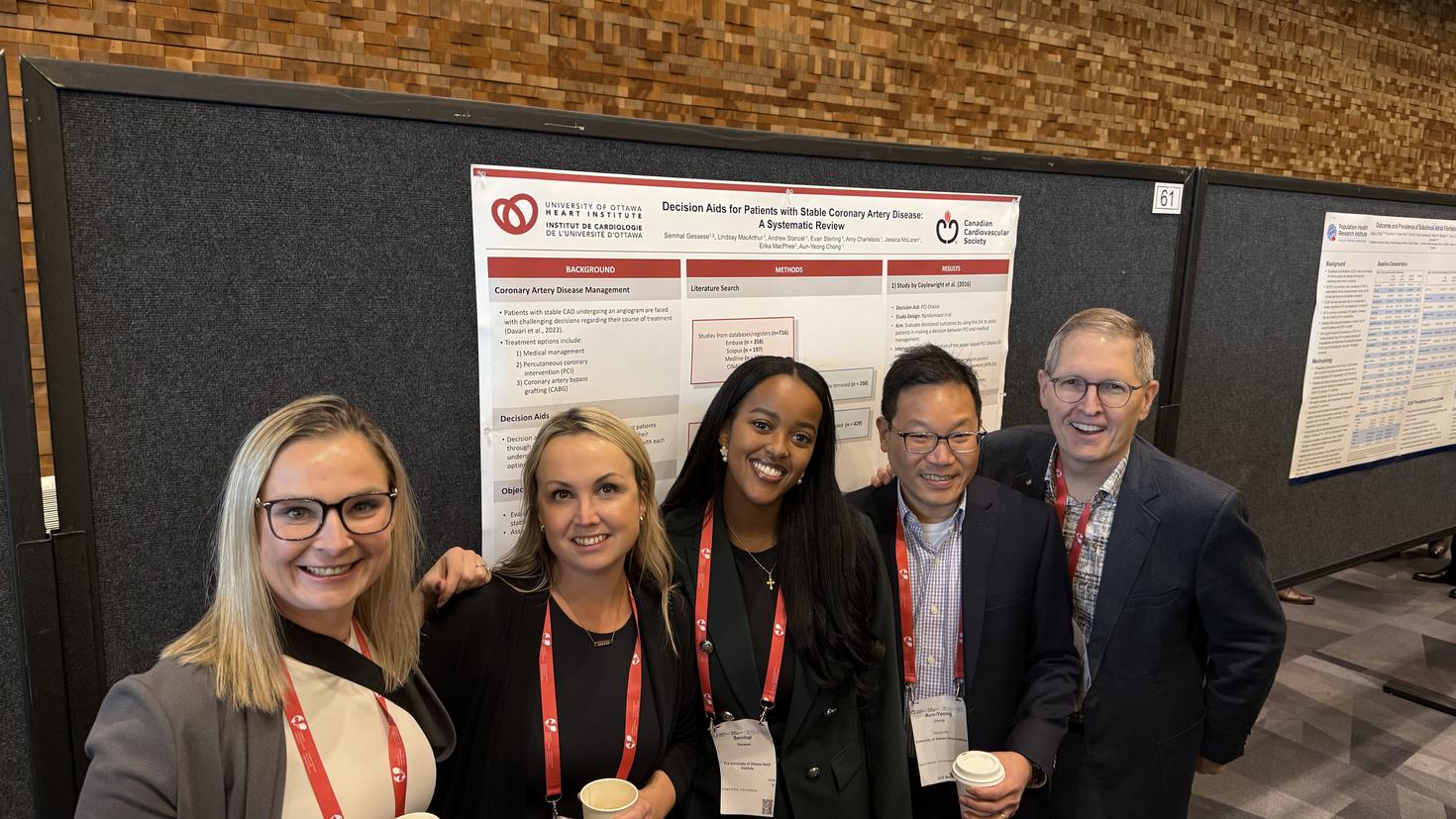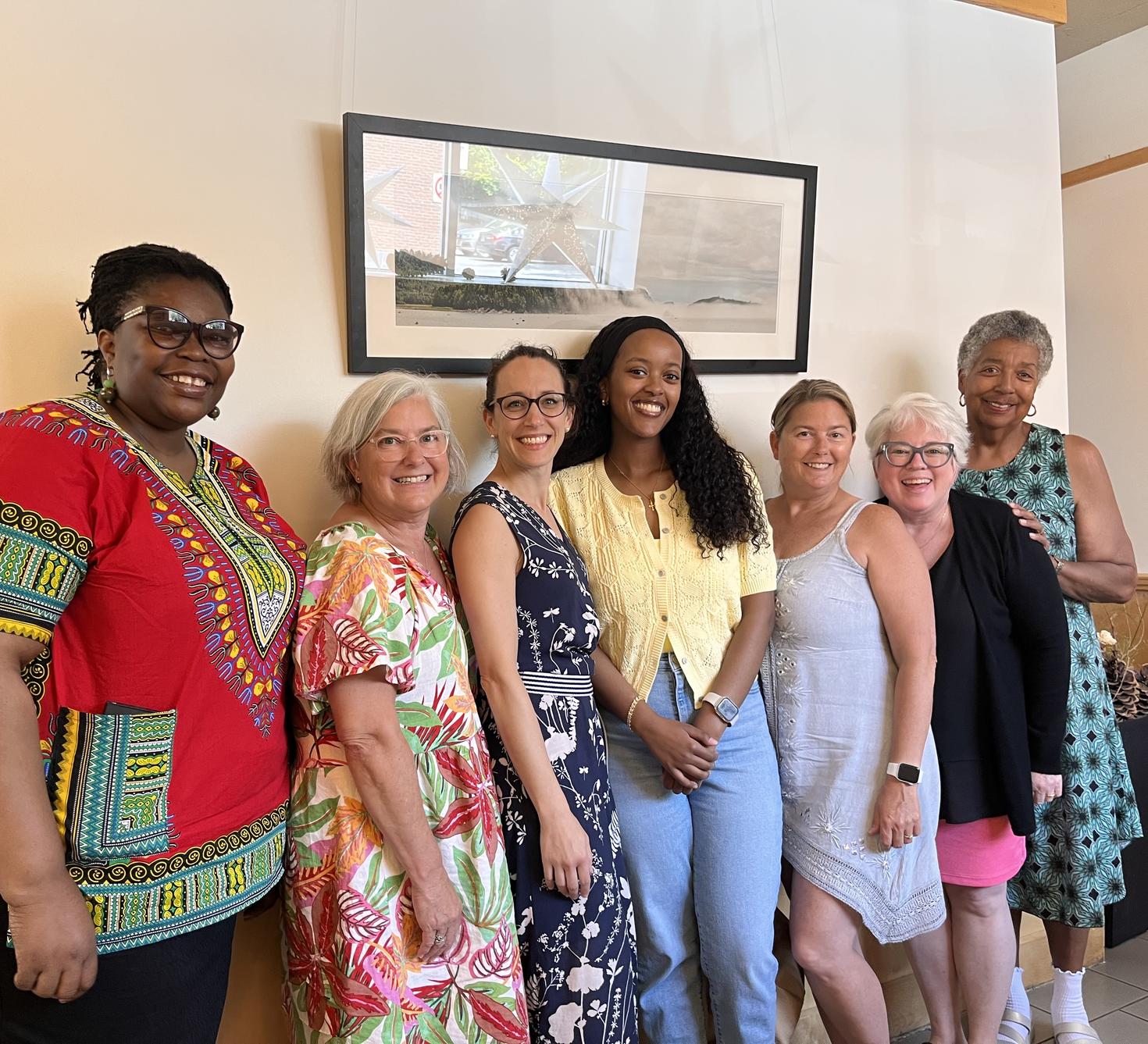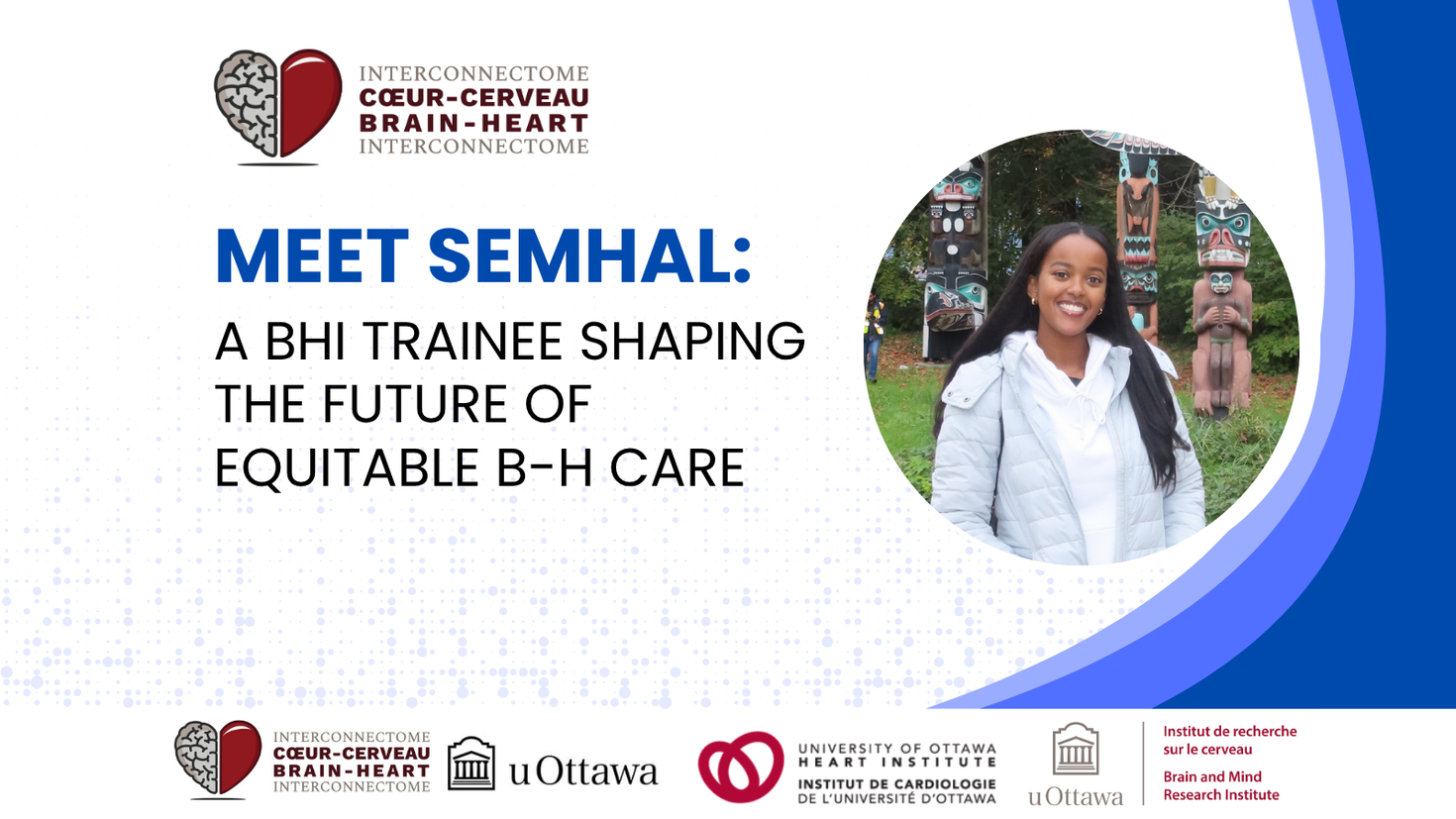Meet Semhal

Semhal Sisay Gessese first became engaged with the BHI while she was completing her Master’s degree in Nursing at the University of Ottawa. Her research focused on the needs of African, Caribbean, and Black populations in informed decision-making regarding brain-heart healthcare. Supervised by Dr. Krystina B. Lewis, lead of the Knowledge Mobilization and Co-Production crosscutter at the BHI, her research interests are in health equity and the decision-making needs of African, Caribbean, and Black populations in healthcare.
Semhal completed her Master’s degree in the Spring of 2025. Motivated by the impact of this important work, she has decided to continue her research with Dr. Lewis as a PhD student.
Joining the BHI

After obtaining her undergraduate degree in Nursing from the University of Ottawa in 2023, Semhal first began working in the surgical unit at the Queensway Carleton Hospital and later moved to the cardiac surgery unit at the University of Ottawa Heart Institute.
Whether it was as a personal support worker, an undergraduate nursing student, or a cardiac surgery registered nurse, Semhal’s career path has been pivotal in shaping her expertise in patient care, and drives how she approaches patient involvement in her current research. Working in cardiovascular care, Semhal became increasingly aware of the brain-heart connection, often interacting with patients who experienced concurrent disorders. For example, patients with atrial fibrillation are at increased risk of both stroke and mental health conditions, such as anxiety and depression.
“Looking back, I can see how treatment for the heart is separate from the brain. There’s still not much integration in terms of how we care for patients,” Semhal notes.
When Semhal had the opportunity to apply for a BHI Trainee Scholarship, it was a fitting opportunity to explore the brain-heart connection for her Master’s research. Semhal also noticed gaps in healthcare for those from African, Caribbean, and Black populations. First introduced to critical race theory during an undergraduate course taught by her future supervisor, Dr. Lewis, Semhal became interested in health equity research for under-represented populations.
Semhal’s Research
For her Master’s thesis, Semhal focused on exploring the health-related decision-making experiences of African, Caribbean, and Black populations, later expanding the study to include other equity-deserving groups diagnosed with brain-heart conditions. Working closely with a patient partner, who informed Semhal of the barriers experienced by members of the African, Caribbean, and Black population, she was able to understand the unique challenges that patients from racialized groups experience in the healthcare system.
When interacting with the healthcare system, patients face many decisions regarding treatment and care options. Patients often face challenges and encounter barriers when making such decisions, which carry significant implications for their health. Semhal and Dr. Lewis’ research focuses on the creation of patient decision-aids, a tool that presents available options that are evidence-based, easy to understand, and tailored to the needs of patients. These tools are critical in facilitating informed healthcare decisions and supporting healthcare professionals and patients.
As she continues her research with Dr. Lewis for her PhD studies, Semhal aims to co-develop a patient decision aid that is equitable, culturally competent, and reduces decisional conflict for patients from equity-deserving groups. This research will address gaps in the literature in addressing the brain-heart connection and addressing barriers for those from equity-deserving groups.
Experiences with the BHI

After receiving a BHI Trainee Scholarship in 2024, Semhal became more involved with several of the BHI’s cross-cutter themes. She particularly became engaged with co-production and knowledge mobilization, patient engagement, and IDEAS. This was a natural fit, given how closely her research aligns with IDEAS and the patient experience.
One of the most transformative aspects of her experience has been learning how to meaningfully engage patients in research, which was guided by Dr. Lewis’s expertise.
“Co-production was new to me, but it stood out. It taught me that patients are not just study participants, they are equal members of the research team,” she says.
During her research Semhal has built lasting relationships with several patient partners, some of whom have even participated in BHI events alongside her. Herself and Rosalyn Blackett, the patient who partnered in Semhal’s Master’s research and continues to do so during her PhD, were both invited to share their experience in co-production at a BHI Trainee Workshop and the BHI Summer School.
Semhal’s experience as a nurse has fostered her skillset in patient engagement and has been critical for building trusting, honest relationships with patients. These relationships have proven to be the foundation of successful research collaborations.
As Semhal adds, “It’s about listening, applying the feedback that patients share, and making sure they feel supported.”
Semhal is also a member of the IDEAS committee, focusing on how the BHI can advance equity-based research.
“Being part of this committee has really given me the opportunity to share my lived experiences as a Black woman and clinician, while also learning from others and contributing to a joint vision for equity-focused research,” she reflects.
Her involvement with the BHI has not only enriched her academic path but also broadened her perspective on research excellence. She now approaches projects with a deeper understanding of how to embed BHI’s cross-cutting principles, such as equity, co-production, and patient-centeredness, from the conceptual stage through to dissemination.
“The BHI has changed how I think about research, and even how I practice clinically,” Semhal has emphasized.
This shift has led to Semhal being recognized for contributions to research. In May 2025, she won the award for best oral poster presentation at the Canadian Council of Cardiovascular Nurses Conference, which showcased her BHI project titled “Decisional Needs of Equity-Deserving Groups Diagnosed with Brain-Heart Conditions: A Mixed Methods Study”.
Reflections
Semhal has continued to work part-time as a nurse while she completes graduate school, often working overnight shifts. While she admits how demanding life as a trainee can be, she balances both clinical and academic commitments by implementing strong time management skills and setting clear priorities. Semhal encourages fellow trainees to establish structured routines, remain flexible when challenges arise, and make time for rest and reflection. She highlights that success in research doesn’t require sacrificing other meaningful parts of life, it’s about learning to integrate them with intention and care.
The BHI is grateful for the many talented trainees helping to advance brain-heart research and looks forward to following their future career achievements. Trainees interested in exploring more BHI opportunities or becoming a member can visit our Trainee Resource Hub here.
